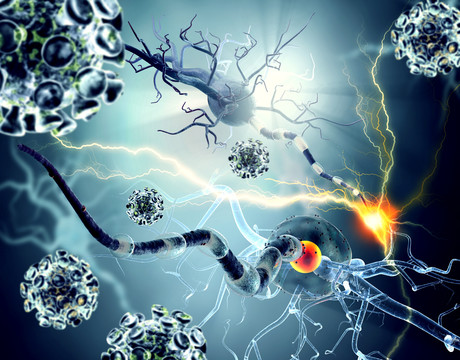AI predicts Alzheimer's
Thursday, 11 October, 2018

A new artificial intelligence (AI) algorithm can accurately predict cognitive decline leading to Alzheimer’s disease within a five-year period.
Created by scientists in Canada, the algorithm learns signatures from magnetic resonance imaging (MRI), genetics and clinical data.
Dr Mallar Chakravarty, a computational neuroscientist at the , and his colleagues from the and the Centre for Addiction and Mental Health designed a specific algorithm that can help predict whether an individual’s cognitive faculties are likely to deteriorate towards Alzheimer’s within five years.
“At the moment, there are limited ways to treat Alzheimer’s and the best evidence we have is for prevention. Our AI methodology could have significant implications as a ‘doctor’s assistant’ that would help stream people onto the right pathway for treatment. For example, one could even initiate lifestyle changes that may delay the beginning stages of Alzheimer’s or even prevent it altogether,” said Dr Chakravarty, an Assistant Professor in ’s Department of Psychiatry.
The findings used data from the . The researchers trained their algorithms using data from more than 800 people ranging from normal healthy seniors to those experiencing mild cognitive impairment and Alzheimer’s disease patients. They replicated their results within the study on an independently collected sample from the .
Can the predictions be improved with more data?
“We are currently working on testing the accuracy of predictions using new data. It will help us to refine predictions and determine if we can predict even farther into the future,” said Dr Chakravarty. With more data, the scientists would be able to better identify those in the population at greatest risk for cognitive decline leading to Alzheimer’s.
Worldwide, around 50 million people have dementia and the total number is projected to reach 82 million in 2030 and 152 in 2050, according to the World Health Organization. Alzheimer’s disease, the most common form of dementia, may contribute to 60–70% of cases. Presently, there is no truly effective treatment for this disease.
The article ‘’ was published in .
Australian Digital Health Agency launches Health Connect Australia
To improve access to health information between healthcare participants, the Australian Digital...
Survey: Global IT decision-makers chart digital health care
A global survey of 1750 IT decision-makers across 11 countries charts some key challenges and...
Artificial touch boosted by brain-controlled bionic hand
New research suggests that a complex sense of touch for people with spinal cord injuries is now a...





